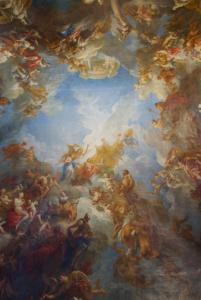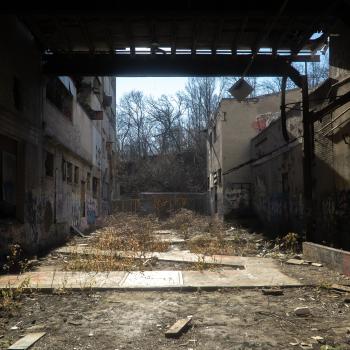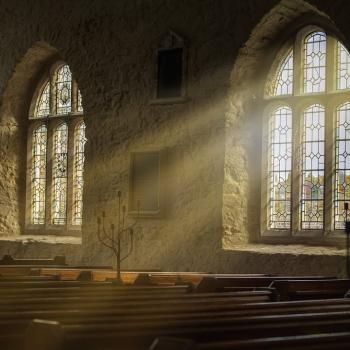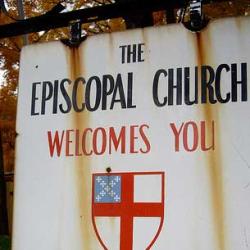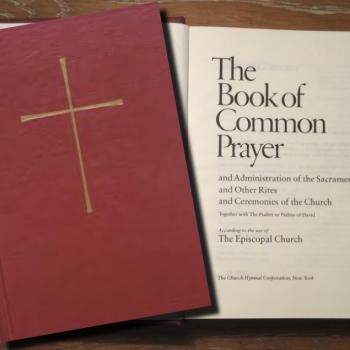(With apologies to the prophet Habakkuk)
Maybe it’s just the limitations of the average search engine. Maybe it’s user error.
But interestingly when you search for the characteristics of dying institutions, even a bit of tinkering still yields the same result. Most of the articles you locate are devoted to dying in institutions, not the death of institutions.
But the dynamic is everywhere you look today. There are serious questions about the relevance and reliability of our institutions. Crises of one kind or another plague almost all of them. Many of them are failing to attract the participation and support that they once enjoyed, and almost of them are in one kind of financial jeopardy or another, as a result.
On reflection, though, it is probably not all that hard to identify the characteristics of a dying institution. In addition to the layers of disenchantment and evaporating support described above, they include:
A loss of focus or the failure of the institutional narrative (or “losing the thread”)
Denial:
- including the tendency to define failure as success or innovation
- business as usual
- and the absence of conversations that address the strategic challenges ahead
Doubling down on the development of the institution’s bureaucracy
The movement of energy and life to the periphery of the organization, where ever smaller numbers of people kindle enthusiasm for the institution’s central gifts
And the tendency to align with other failing institutions, masking the failure of the individual institutions involved
Nowhere are these characteristics more plainly on display than in mainline Protestantism. And in mainline Protestantism, there is no better example of that decline than the Episcopal Church (much to my dismay and the dismay of many of my colleagues).
As we work to serve and build individual parishes, with an eye to building robust ministries and a future for the churches in our community, the denominational apparatus seems to carry on, oblivious to the state of the larger church. And almost every agenda item before the 2024 General Convention reflects the characteristics described above.
How did we get here? There are a number of factors, some of which have nothing to do with choices that we made denominationally:
- We are facing a generational change, nation-wide.
- SBNRs (the Spiritual but not Religious) now outnumber all mainline Protestants nationwide. So, interest in church itself is in decline.
There are other factors that are our own fault:
- We quit developing programs for youth.
- We closed a number of our church camps, which also engaged children and young adults.
- We closed campus ministries.
- We failed to develop a culture that made ministry attractive to young people.
- We failed to build a denominational culture that plants and builds churches or that emphasizes evangelism and takes parish life seriously.
- We managed conflict in the same zero-sum fashion that our broader political culture handles it.
- And Boomers have done a poor job of lifting up a younger cohort of leaders.
But, of course, the underlying question is, “What is it about our practice of the Christian faith that fails to attract new people?”
The answer, I think, is this: The Episcopal Church has inherited two gifts that are the heart of our common life: worship grounded in the historic liturgies of the church and a theology grounded in a unique mix of the Orthodox, Catholic, and Protestant traditions. But we don’t act like it, we don’t emphasize it, and we don’t live out of it.
Instead, for decades we have emphasized inclusion and – now – progressive, political themes. And whatever their merit, there is nothing about either one that connects organically with the gifts that our tradition has to offer (as important as being welcoming and inclusive is). That is evident from the fact that – despite our efforts on both fronts, for the better part of a century — we are neither larger, nor more diverse. We are, in fact, both smaller and more homogeneous.
Why has this happened? For one thing, every church is making one kind of effort at inclusion of some kind. For another, churches are not necessary to the practice of politics. In fact, religious language of the kind that Episcopalians use is a distraction. And in a widely religious and politicized culture, there are already ample alternatives for nurturing diversity and progressive political views.
The presumption that if we were more open to diversity or more fully engaged in political endeavors of one kind or another would – inevitably – bring more people into the church overlooks all three facts. People were not waiting with bated breath, for the Episcopal Church to be diverse and progressive, and we should have been modest enough to grasp that fact. Conceived of as goals for the church, they are, in fact, of interest only to people who belong to the Episcopal Church for more basic reasons; and the only good reason to belong to the Episcopal Church is that people can encounter the living Christ in the liturgy and theology of our tradition. But in an institution that has lost the narrative, this realization will remain opaque.
That is why General Convention will not be discussing the challenge of revitalizing the church. We will – again – focus on our failure to be more diverse and more politically influential. That failure will be the subject of much wailing and gnashing of teeth. We will pass resolutions. Create new agencies. Launch new programs. Tinker with our liturgy. Spend more money. And announce to the world – again, with great fanfare – that we are all the world wants in a church. If only we were clear about what church is all about.
Photo by Simon Champagne on Unsplash


